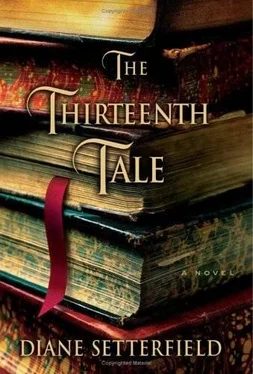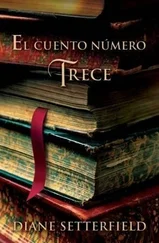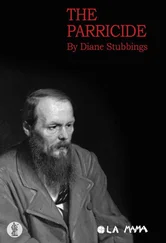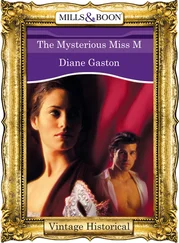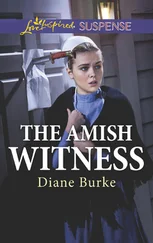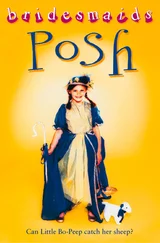The patient was in one of her sullen but unresisting moods. She allowed herself to be led into the room where the examination took place, and submitted to being poked and prodded. Invited to open her mouth and stick out her tongue, she would not, but at least when the doctor stuck his fingers in her mouth and physically separated upper from lower jaw to peer in, she did not bite him. Her eyes slid away from him and his instruments; she seemed scarcely aware of him and his examination. She could not be induced to speak a single word.
Dr. Maudsley found his patient to be underweight and to have lice; otherwise she was physically healthy in every respect. Her psychological state, however, was more difficult to determine. Was the child, as John-the-dig implied, mentally deficient? Or was the girl's behavior caused by parental neglect and lack of discipline? This was the view of the Missus, who, publicly at least, was inclined always to absolve the twins.
These were not the only opinions the doctor had in mind when he examined the wild twin. The previous night in his own house, pipe in mouth, hand on fireplace, he had been musing aloud about the case (he enjoyed having his wife listen to him; it inspired him to greater eloquence), enumerating the instances of misbehavior he had heard of. There had been the thieving from villagers' cottages, the destruction of the topiary garden, the violence wrought upon Emmeline, the fascination with matches. He had been pondering the possible explanations when the soft voice of his wife broke in. "You don't think she is simply wicked?"
For a moment he was too surprised at being interrupted to answer.
"It's only a suggestion," she said with a wave of her hand, as if to discount her words. She had spoken mildly, but that hardly mattered. The fact that she had spoken at all was enough to give her words an edge.
And then there was Hester.
"What you must bear in mind," she had told him, "is that in the absence of any strong parental attachment, and with no strong guidance from any other quarter, the child's development to date has been wholly shaped by the experience of twinness. Her sister is the one fixed and permanent point in her consciousness; therefore her entire worldview will have been formed through the prism of their relationship."
She was quite right, of course. He had no idea what book she had got it out of, but she must have read it closely, for she elaborated on the idea very sensibly. As he listened, he had been rather struck by her queer little voice. Despite its distinctively feminine pitch it had more than a little masculine authority about it. She was articulate. She had an amusing habit of expressing views of her own with the same measured command as when she was explaining a theory by some authority she had read. And when she paused for breath at the end of a sentence, she would give him a quick look-he had found it disconcerting the first time, though now he thought it rather droll-to let him know whether he was allowed to speak or whether she intended to go on speaking herself.
"I must do some more research," he told Hester when they met to discuss the patient after the examination. "And I shall certainly look very closely at the significance of her being a twin."
Hester nodded. "The way I look at it is this," she said. "In a number of ways, you could view the twins as having divided a set of characteristics between them. Where an ordinary, healthy person will feel a whole range of different emotions, display a great variety of behaviors, the twins, you might say, have divided the range of emotions and behaviors into two and taken one set each. One twin is wild and given to physical rages; the other is indolent and passive. One prefers cleanliness; the other craves dirt. One has an endless appetite for food, the other can starve herself for days. Now, if this polarity-we can argue later about how consciously it has been adopted-is crucial to Adeline's sense of identity, it is unsurprising, is it not, if she suppresses within herself everything that in her view falls on Emmeline 's side of the boundary?" The question was rhetorical; she did not indicate to the doctor that he might speak, but drew in a measured breath and continued. "Now, consider the qualities in the girl in the mist. She listens to stories, is capable of understanding and being moved by a language that is not twin language. This suggests a willingness to engage with other people. But of the twins, which is it who has been allocated the job of engaging with others? Emmeline! And so Adeline must repress this part of her humanity."
Hester turned her head to the doctor and gave him the look that meant it was his turn to speak.
"It's a curious idea," he answered cautiously. "I should have thought the opposite, wouldn't you? That you could expect them to be more alike than dissimilar?"
"But we know from observation that that isn't the case," she countered briskly.
"Hmm."
She did not speak but let him consider. He stared at the empty wall, deep in thought, while she cast anxious glances in his direction, trying to divine the reception of her theory from his face. Then he was ready to make his pronouncement.
"While this idea of yours is an interesting one"-he put on a sympathetic smile to soften the effect of his discouragement-"I don't recall ever reading about such a division of character between twins in any of the authorities."
She ignored the smile and met his eyes levelly. "It isn't in the authorities, no. If it was going to be anywhere it would be in Lawson, and it isn't."
"You have read Lawson?"
"Of course. I would not dream of pronouncing an opinion on any subject without being sure of my references first." "Oh." "There is a reference to the Peruvian boy twins in Harwood that is suggestive, though he stops short of the full conclusion that might be drawn."
"I remember the example you mean… " He gave a little start. "Oh! I see the connection! Well, I wonder whether the Brasenby case study is of any relevance? "
"I haven't been able to obtain the full study. Can you lend it to me?"
So it began.
Impressed by the acuity of Hester's observations, the doctor lent her the Brasenby case study. When she returned it, there was a sheet of pithily expressed notes and questions attached. He, in the meantime, had obtained a number of other books and articles to complete his library on twins, recently published pieces, copies of work in progress from various specialists, foreign works. He found after a week or two that he could save himself time by passing these to Hester first, and reading for himself just the concise and intelligent summaries she produced. When between them they had read everything it was possible to read, they returned to their own observations. Both of them had compiled notes, his medical, hers psychological; there were copious annotations in his handwriting in the margins of her manuscript, but she had made even more notes on his, and sometimes attached her own cogent essays on separate pieces of paper.
They read; they thought; they wrote; they met; they discussed. This went on until they knew everything there was to know about twins, but there was still one thing they did not know, and it was the one thing that mattered.
"All this work," the doctor said one evening in the library, "all this paper. And we are still no nearer." He ran his hand through his hair in an agitated manner. He had told his wife he would be back by half past seven, and he was going to be late. "Is it because of Emmeline that Adeline represses the girl in the mist? I think the answer to that question lies outside the bounds of current knowledge." He sighed and tossed his pencil onto the desk, half annoyed, half resigned.
"You are quite right. It does." You could forgive her for sounding testy-it had taken him four weeks to reach the conclusion she could have given him at the beginning if he had only been willing to listen.
Читать дальше
